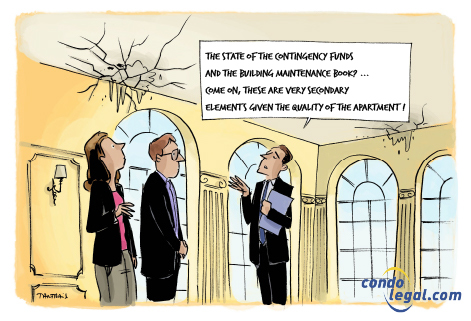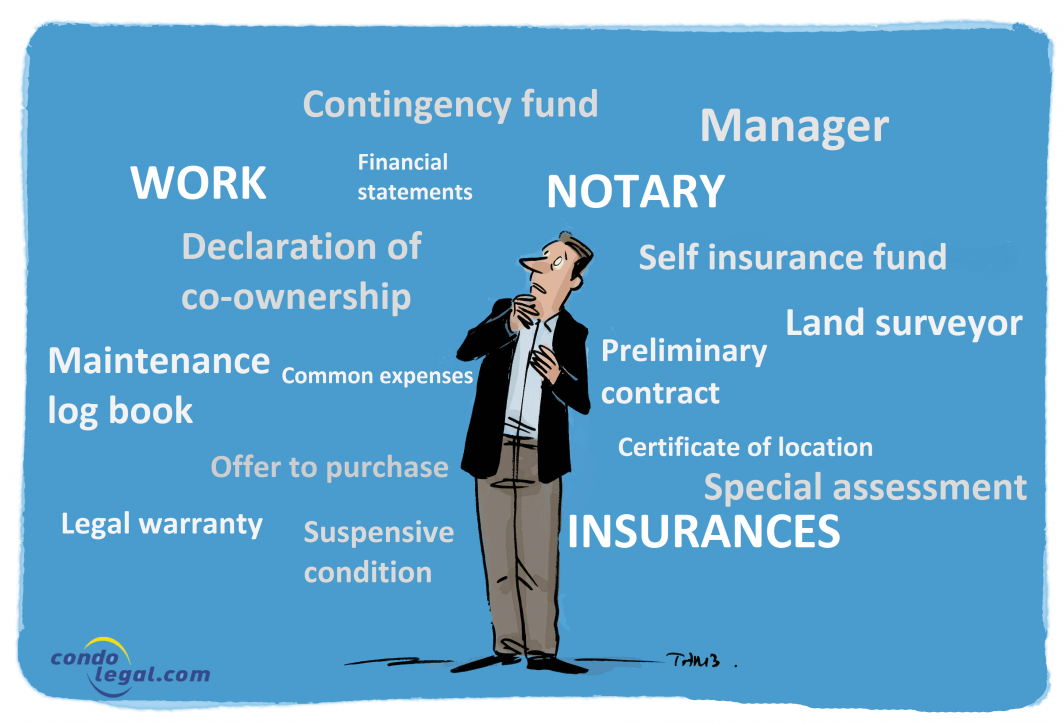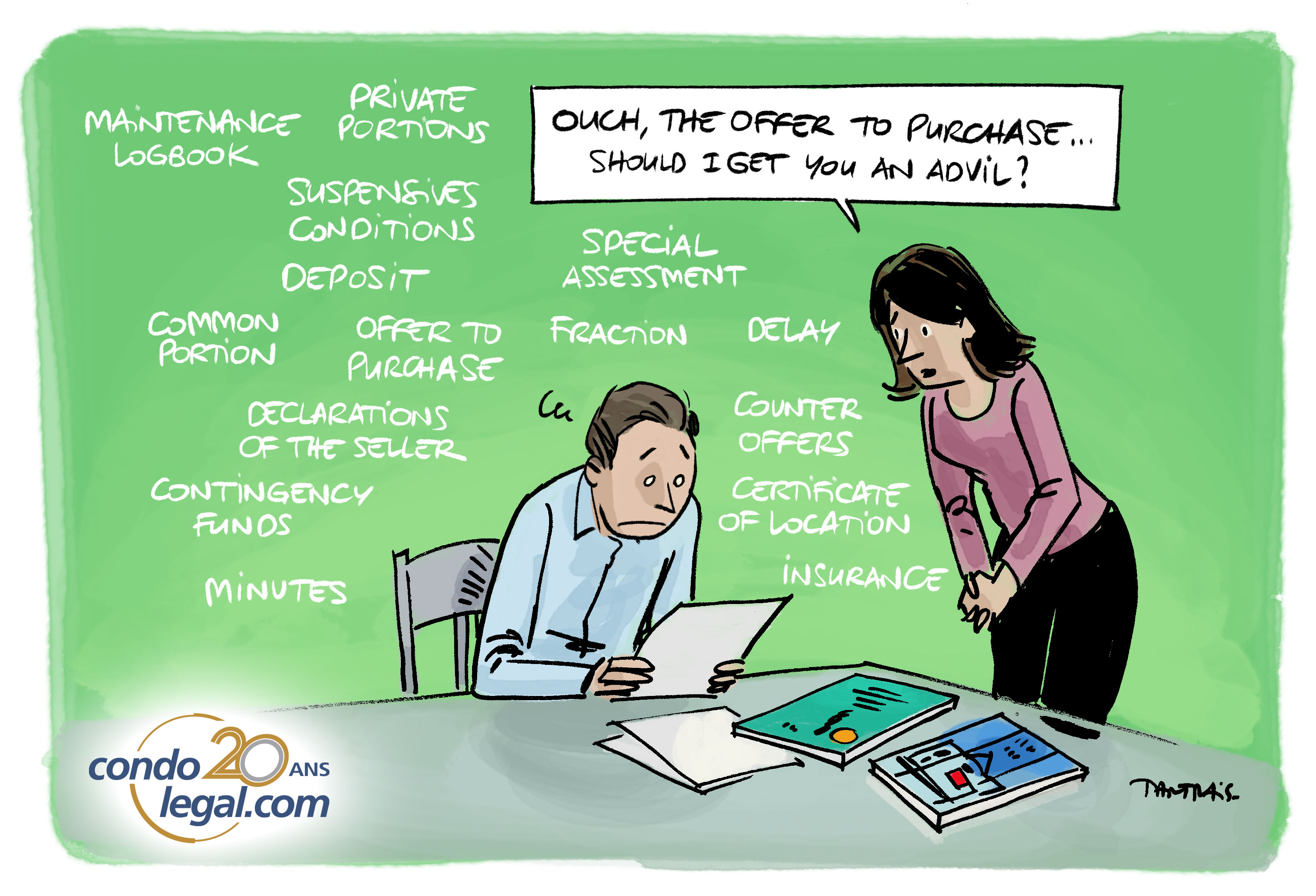 Seeking the services of a real-estate broker, who was formerly referred to as a real estate agent, is not mandatory. However, unless you are able to assume the purchase and / or sale of a fraction of a building held in divided co-ownership by yourself, which will require ample time as well as in-depth knowledge in various fields, you would benefit from being accompanied by a competent real estate broker during your procedures. When you use the services of a real estate broker to buy, sell or lease a property, you are protected by the Real-Estate Brokerage Act.
Seeking the services of a real-estate broker, who was formerly referred to as a real estate agent, is not mandatory. However, unless you are able to assume the purchase and / or sale of a fraction of a building held in divided co-ownership by yourself, which will require ample time as well as in-depth knowledge in various fields, you would benefit from being accompanied by a competent real estate broker during your procedures. When you use the services of a real estate broker to buy, sell or lease a property, you are protected by the Real-Estate Brokerage Act.
A regulated practice
A real estate broker can either act on his own account or work for a real real estate agency, but his activities are governed by the Real Estate Brokerage Act. The “Organisme d'autoréglementation du courtage immobilier du Québec” (OACIQ), whose mission is to ensure the protection of the public, is responsible for administering and enforcing this law.
Real estate brokers must also observe a Code of professional conduct, which gives consumers increased protection. And because they are required to take out professional liability insurance, the sense of security of a selling owner or acquirer is heightened. You should know that the Quebec Real Estate Brokerage Insurance Fund (FARCIQ) is responsible for ensuring the professional liability of Quebec real estate agencies and brokers. FARCIQ offers protection in the event of fault, error, negligence or omission that could be committed by a brokerage license holder in the exercise of his professional activities. Thus, this Fund's mission is to pay compensation for the resulting loss when professional liability is demonstrated.
Brokerage contract and seller's declaration
The brokerage contract (divided co-ownership) is the document by which a co-owner undertakes to give a real estate broker the right to act as an intermediary and assist him in the sale of his private portion. It must be completed by the broker, with the collaboration of the selling co-owner. In addition to this contract, there is also a form entitled Declarations by the seller on the immovable. This form allows the buyer to obtain details on the condition of the building (both the private portion and the common portions of the co-ownership). The seller will fill it out, along with the brokerage contract with the broker's assistance. This form is an integral part of the brokerage contract. This is a guarantee of security, both for the seller, by avoiding possible recourse, and for the buyer, by allowing him to make an informed decision on the property.
Multiple tasks
A real estate broker is a guide, in a way, who must in particular assess correctly the value of a property, and seek relevant information concerning its history. He will do so by means of the RIS form (Request for information from the syndicate of co-owners) and by consulting the appropriate documentation, for example:
It should be noted that the real estate broker must refer the services of experts recognized in co-ownership to carry out, if necessary, the necessary verifications.
The remuneration of the real-estate broker
The Real Estate Brokerage Act does not deal with the amount that the broker can claim as compensation for a transaction. This varies from real estate agency to real estate agency and even from broker to broker because it is an agreement that you must negotiate together.
The compensation to be paid is generally attributable to the seller. This includes, with some exceptions, the costs inherent in its services: negotiations, advertising, communication, and multiple trips. This compensation is freely negotiated between the two parties. It can be paid in several forms:
Regardless of the form of compensation chosen, it is taxable. If your broker acts for an agency, the compensation will be paid to the agency once the services have been rendered.
A secure transaction
During the entire process, the real estate broker must ensure the conditions of practice that will lead to a secure transaction. Otherwise, consumers have certain protections, including the Real Estate Indemnity Fund (FICI) and the Professional Liability Insurance Fund (FARCIQ).
Mandatory training
Anyone who wishes to become a real estate broker is subject to a "rigorous entrance examination". And since May 1st, 2015, real estate brokers must follow mandatory continuing education, which is imposed by the OACIQ. Throughout their career, brokers must follow a mandatory continuing education program in order to maintain and update their knowledge. You can access the list of training courses taken by your broker by consulting the Register of license holders.
If, for example, you want to buy a co-ownership and you would like to use the services of a broker who specializes in this type of real estate, the register can tell you whether a permit holder has taken specific training on this subject. You are therefore assured that they have mastered all the cogs specific to their profession, and that their knowledge is regularly updated.
In this regard, among the accredited training courses is the Condo Training, which is organized by the OACIQ, in collaboration with emeritus lawyer Yves Joli-Coeur of the law firm Dunton Rainville. The real estate brokers who follow it are awarded the title Passion Condo and are listed in the “Passion Condo” on the site Condolegal.com.
An invaluable strike force
While looking for or selling a property in the company of a real estate broker, the latter deploys an arsenal of tools to complete the transaction, including the Centris system, which immediately targets the co-ownership that match your profile, or buyers who might be interested in your apartment.
In addition, he accompanies you during your visits to advise you adequately. A real estate broker can also help negotiating the sale or purchase price. This is a delicate step that requires the help and support of an experienced person. All in all, a real estate broker ensures a presence during all the stages that will ultimately lead to the signing of the deed of sale at the notary.
Mandatory and recommended standard forms prepared by the “OACIQ”
The OACIQ has produced forms to protect your interests. Any real estate broker must use those that are required in a given situation. These are (mainly) the following forms:
 WHAT YOU SHOULD KNOW! A real estate broker who works in the field of co-ownership should, imperatively, have taken appropriate training and be adequately familiar with the law of co-ownership.To help you choose your broker, Condolegal.com gives access to the Register of the brokers who have followed the Condo Training.
WHAT YOU SHOULD KNOW! A real estate broker who works in the field of co-ownership should, imperatively, have taken appropriate training and be adequately familiar with the law of co-ownership.To help you choose your broker, Condolegal.com gives access to the Register of the brokers who have followed the Condo Training.
 WHAT TO KEEP IN MIND: Regardless of whether the real estate broker has a mandate from one or both parties to the transaction, he or she has an obligation to audit and advise both parties to a transaction. He must objectively advise and inform the party he represents and all parties to a transaction.
WHAT TO KEEP IN MIND: Regardless of whether the real estate broker has a mandate from one or both parties to the transaction, he or she has an obligation to audit and advise both parties to a transaction. He must objectively advise and inform the party he represents and all parties to a transaction.
 WARNING! The mission of the Quebec real estate brokerage self-regulation (OACIQ) is to protect the public by ensuring the application of the Real Estate Brokerage Act. It ensures that the competence of brokers and agency managers is there. Make sure that the broker whose services you wish to retain hold a valid license, by consulting the OACIQ's Register of license holders.
WARNING! The mission of the Quebec real estate brokerage self-regulation (OACIQ) is to protect the public by ensuring the application of the Real Estate Brokerage Act. It ensures that the competence of brokers and agency managers is there. Make sure that the broker whose services you wish to retain hold a valid license, by consulting the OACIQ's Register of license holders.




.png)


